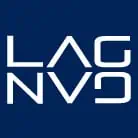Business Asset Disposal Relief (BADR)is an excellent tool to mitigate a capital gains tax liability on the disposal of business assets, shares or securities in trading companies.
It is available to individuals and trustees, and it works by applying a rate of Capital Gains Tax (CGT) of 10% to qualifying gains up to a lifetime limit of £1 million for disposals occurring on or after 11 March 2020.
What Is Business Asset Disposal Relief (Entrepreneurs Relief)?
Business Asset Disposal Relief (previously called Entrepreneurs Relief) is a relief on Capital Gains Tax that allows individuals selling or disposing of qualifying business assets (or businesses as a whole) to pay a reduced Capital Gains Tax rate of just 10% compared to the typical 20%.
The UK renamed Entrepreneurs Relief in 2020 to Business Assets Disposal Relief (BADR) and reduced the maximum lifetime limit on claim gains from £10 million to £1 million. The maximum rate still allows savings of up to £100,000.
Qualifying Assets
BADR applies to gains made on disposals by individuals of the following assets:
- Shares and securities of a personal trading company;
- Transfer of the whole or part of a business;
- Assets in use on the cessation of a business;
- Associated disposals of personally-owned assets.
(Sections 169I-169K, TCGA 1992.)
Any disposal of a qualifying asset is a qualifying business disposal.
Trustees may also benefit from BADR on qualifying disposals (section 169J, TCGA 1992) when a qualifying beneficiary works in the business or is an employee or officer of the company whose shares are disposed of and owns at least 5% of the shares.
Company's shares and securities
BADR applies to the disposal of shares or securities of a company when the following conditions are met throughout the period of two years ending with the date of the disposal:
- The company is a trading company (or the holding company of a trading group).
- The individual holds at least 5% of the company's ordinary share capital, and he is beneficially entitled to:
- 5% of the distributable profits and 5% of the company's assets available for distribution on a winding-up; or
- 5% of the proceeds if the whole of the ordinary share capital of the company were sold for its market value
- The individual is an officer or employee of the company or of one of the company's members of the same trading group.
For BADR purposes, "securities" are defined in section 169S(5) of TCGA 1992 and include debentures of a company deemed to be securities by section 251(6) of TCGA 1992.
It is important to note that BADR only applies when the disposal is subject to CGT.
When a gain on a disposal of shares or securities is reclassified as income, for example, where the Transaction In Securities anti-avoidance legislation is invoked by HMRC, the relief will be denied.
Any interaction with section 135, TCGA 1992, in case of a share for share exchange, must be considered, as well as any consequence of deferred considerations and earn-outs.
The Company
For the relief to apply, the company whose shares or securities are disposed of must be a trading company or the holding company of a trading group. The definitions are contained in section 165A and Sch. 7ZA, TCGA 1992.
A company is a trading company where it does not carry out substantial non-trading activities. A number of factors, including capital employed, income or turnover, and time spent on specific activities, can help in determining whether a company is substantially a trading company. The old 20% trading/non-trading activities approach used by HMRC is now obsolete.
In Allam v HMRC [2021] UKUT 291 (TCC), the Upper Tribunal clearly stated that all these factors must be taken into consideration both qualitatively and quantitatively when trying to establish whether a company is a trading company.
Transfer of (the whole or part of) a business
BADR on the disposal of the whole or part of a business may apply where the business has been owned by the individual throughout the period of two years ending with the date of the disposal.
A business is defined by section 169S(1), TCGA 1992, as any trade, profession or vocation conducted on a commercial basis and with a view to the realisation of profits.
How to Claim BADR
Business Asset Disposal Relief must be claimed on a taxpayer's self-assessment return, and it must be made on or before the first anniversary of 31 January after the tax year of disposal.
Business Asset Disposal Relief Claim Limitations
Business Asset Disposal Relief has a lifetime cap of £1 million (section 169N(3), TCGA 1992), but there is no limit on the number of claims that an individual can make as long as they do not exceed the lifetime cap.
In the case of gains made by trustees, the limit is set by reference to the qualifying beneficiary.
Eligibility for EMI
Disposals of shares acquired on or after 6 April 2012 under Enterprise Management Incentives (EMI) options qualify for relief if conditions are met.
In this case, the required 24-month holding period includes the period the EMI option is held by the employee (Section 64 and Schedule 24, Finance Act 2013).
Therefore, if the employee also owns other shares in the same company, the 24-month holding period applies to those other shares.
Investments in EIS
Gains potentially eligible for BADR and rolled over into investments that qualify for Enterprise Investment Scheme (EIS) or Social Investment Tax Relief (SITR) are eligible for BADR when they come back into charge.
Selling Assets After a Business Ceases Being a Trading Company
BADR is also available if a company has ceased trading provided that the conditions for the relief were satisfied throughout the period of two years ending with the date on which the company ceased trading and the trading ceased within the period of three years ending with the date of the disposal.
Claim BADR Today With the Professional Tax Consultancy Services on Your Side
Business Asset Disposal Relief can offer substantial tax savings if planned and used correctly. At Laggan & Associates Ltd, we provide comprehensive tax consultancy services to help you understand whether you may be eligible for it and how to structure a transaction in the best tax-efficient way. Contact Laggan & Associates Ltd today at 020 7631 2061 to meet with an experienced tax advisor from our UK-based team.


